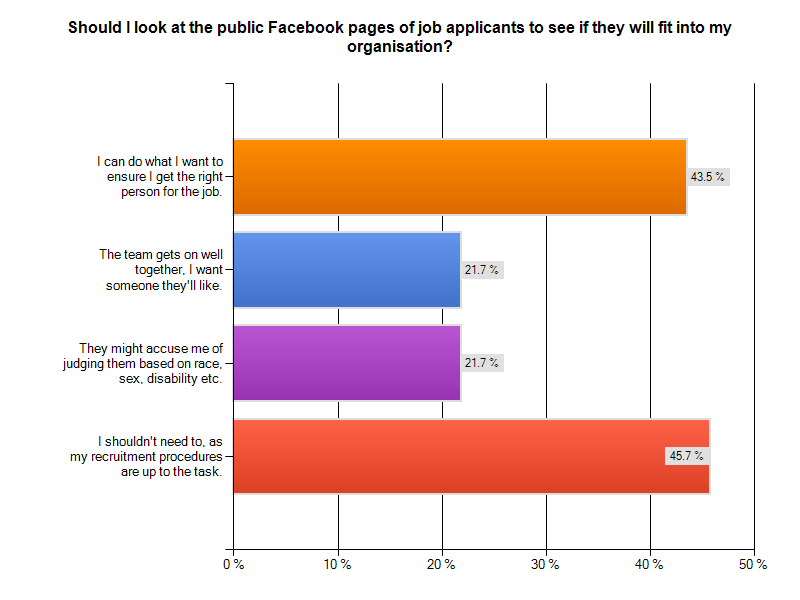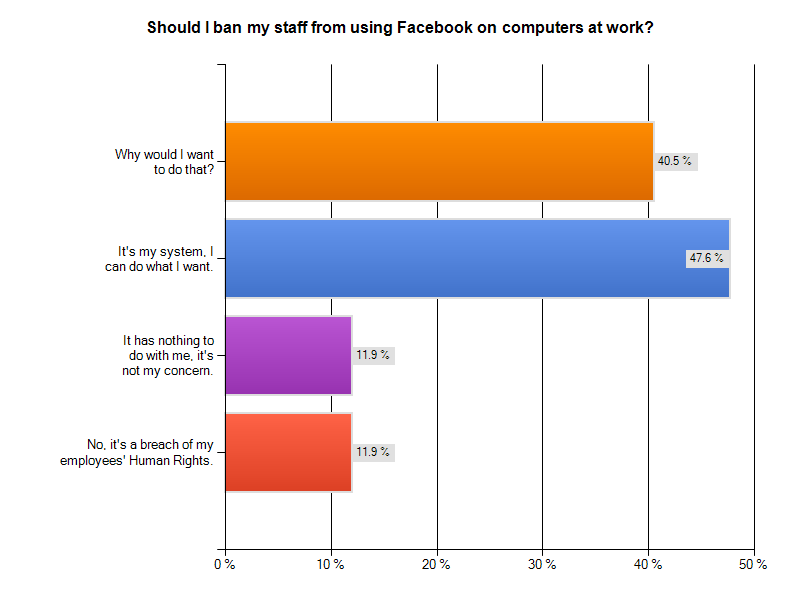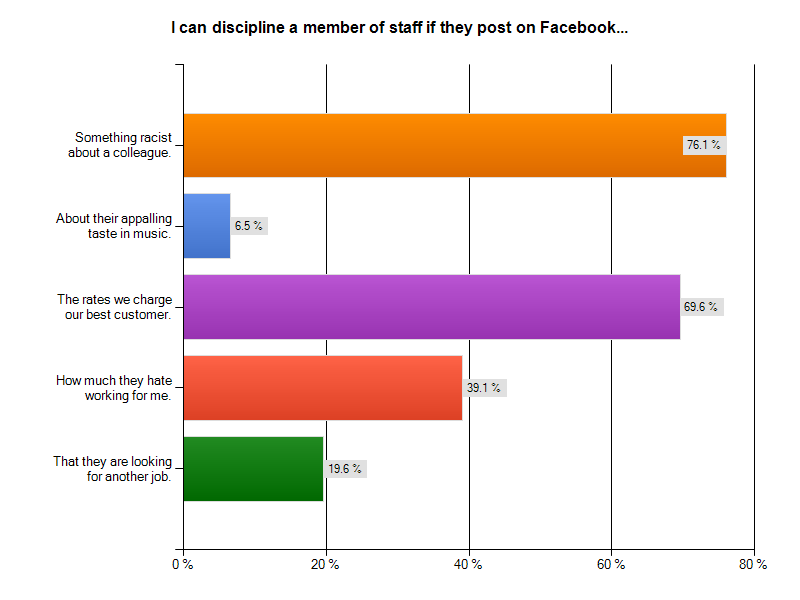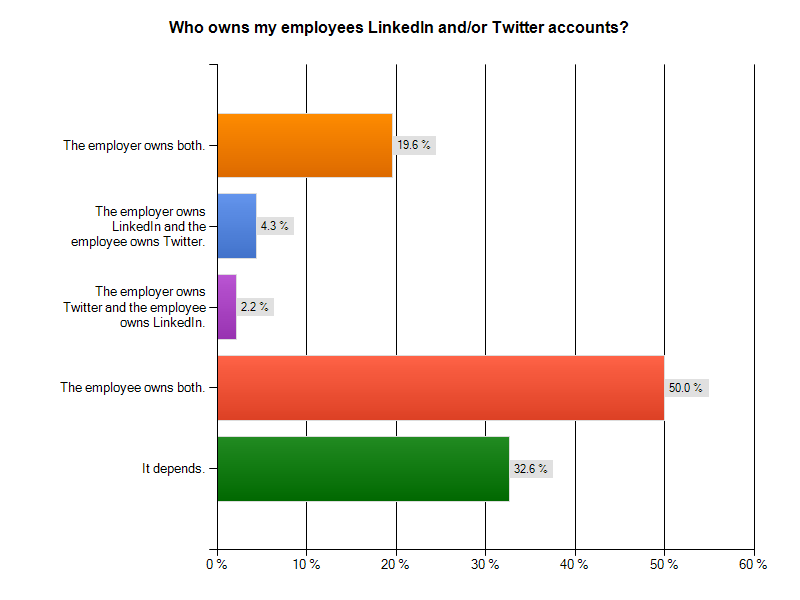To Like Or Not To Like – Social Media In The Workplace
On May 17th, I accompanied the employment law team to Let’s Do Business, an exhibition held at Brighton Racecourse. The event was a great opportunity to get to know other local businesses, catch up with old friends and colleagues, and share some information and guidance on the use of social media in the workplace.
As social media has exploded in popularity over the past decade (with over 10 million active Twitter users in the UK alone) it’s increasingly important that employers ensure they have a clear, comprehensive and well-communicated policy for social media activity in the workplace. This not only protects employers, but ensures that employees like myself (who uses Facebook, Twitter, LinkedIn, Google+ and similar sites on a daily basis) have clearly defined roles and responsibilities.
To help out local businesses in establishing their own social media policies, Practical Law Company kindly provided us with a free social media policy to distribute at Let’s Do Business (which proved very popular – we should have printed more). It’s obvious that most businesses are now embracing at least some form of social media, and we wanted to find out how knowledgeable local businesses were about their rights and responsibilities regarding social media. To this end we held a “Social Media in the Workplace” quiz on our stand, with a bottle of Veuve Clicquot on offer to the respondent with the best answers.
Our winner was Sarah White, Director of Telham Training Ltd., who had the highest score. Congratulations Sarah! We’ll be in touch to arrange delivery of your prize.
All of the quiz results can be found below, with some feedback from our employment law team on each answer. Each chart shows the percentage of respondents who chose that answer. Not all answers are strictly correct or incorrect, with one or two exceptions, but provide a reminder of just some of the many issues which can arise through the use of social media at work.
Should I ban my staff from using Facebook on computers at work?
Why would I want to do that?
You might be concerned that your staff are using Facebook when they should be working.
It’s my system, I can do what I want.
True, within the boundaries of Data Protection and other legislation, which ideally you would cover in an Information and Communication Policy. We recommend that if you also monitor systems you set out that you are doing this in your Information, Communication and Systems Policy.
It’s nothing to do with me, it’s not my concern.
You would be wise to consider the implications of what your staff do on social media sites to avoid vicarious liability for their actions e.g. bullying and harassment.
No, it’s a breach of my employees’ Human Rights.
No, it is not.
I can discipline a member of staff if they post on Facebook…
Something racist about a colleague.
Yes, hopefully you have a Dignity at Work/Anti-Bullying/Harassment Policy or at least an Equal Opportunities Policy which shows no tolerance of such actions. If you don’t you are vulnerable to being held vicariously liable for the discriminatory actions of your staff.
About their appalling taste in music.
No, sadly you can’t!
The rates we charge our best customer.
Probably, depending on the context and how confidential the information is. If this information is on your website or in the public domain, then no.
How much they hate working for me.
Probably not – unless they’ve said what they would like to do to you in the most graphic terms, or they make false allegations which would bring the company into disrepute.
That they are looking for another job.
No, you can’t. Your employees are entitled to move on if they want to. If it’s someone you value, perhaps you should be asking yourself why they want to leave? Make sure that you have enforceable Post Termination Restrictions in your employee’s contracts in order to protect your business interests.
Should I look at the public Facebook pages of job applicants to see if they will fit into my organisation?
 I can do what I want to ensure I get the right person for the job.
I can do what I want to ensure I get the right person for the job.
That’s a dangerous attitude that you might come to regret. An interviewee can claim discrimination for a protected reason such as sex, race, religious belief etc. as there is no qualifying period for discrimination claims.
The team gets on well together, I want someone they’ll like.
If they are a homogeneous group you may be excluding many talented people on potentially discriminatory grounds, such as age or race.
They might accuse me of judging them based on race, sex, disability etc.
That’s possible. How could you show an Employment Tribunal you had not if they brought a claim? It depends on how you use this information.
I shouldn’t need to, as my recruitment procedures are up to the task.
A robust, comprehensive recruitment process should ensure you are hiring the right person. Thinking about where you advertise and ensuring there is an equal opportunities process so that the same questions are asked of all applicants and the responses are recorded is essential.
Who owns my employees’ LinkedIn and/or Twitter accounts?
The answer here is “it depends” on several factors. Social media accounts are contracts between the site and the user. If this is with your employee, rather than you, then you have no obvious rights. However, control can be established through employment contracts and company policies and maintained in Post Termination Restrictions.
There have been cases where the Courts have sided with employers in disputes over ownership of contact lists such as those on LinkedIn. Claims are more like to succeed where the social media presence has been developed in work time, is related to the employer and where there are clear connections with them such as use of a work email address.
If you find yourself in need of advice on the legal issues surrounding the use of social media in the workplace, contact our employment law team, or drop a comment below.






